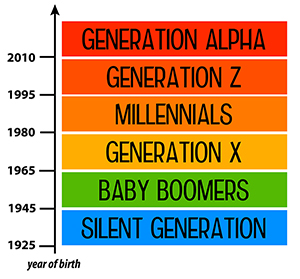If you haven’t heard of Gen Alpha yet, let me explain. Gen Alphas are those born between 2010 and 2025. Named after the first letter in the Greek alphabet, they’re the first generation in which all members will have been born in the 21st century.
They are idealistic. They cheer for diversity. They question gender. They’re highly creative. They’re entrepreneurial. They have only known a world that includes Alexa.
While Gen Z grew up online, Gen Alpha was born online. Ashley Fell, a social researcher at the Australian agency McCrindle, says they were part of an “unintentional global experiment” where screens were given to them at the same time as pacifiers. They will be more impatient than previous generations and will expect their needs to be met instantly.
With the oldest Gen Alphas turning 13 this year, what does that mean for modular factories?
Visitors to this year’s International Builders’ Show were shown major glimpses of what the future holds for the industry: from robotic assembly lines and automated machinery to the software that drives them. Software will soon be as much a part of the production line worker’s toolbox as hammers and screwdrivers are today.
Gen Alpha is getting ready for this future. These little cherubs are already learning faster than any previous generation — not by reading books or doing homework, but by experimenting and learning through online exposure to anything that fascinates them.
They will be lifelong learners, holding multiple jobs across multiple industries. They will be drawn to emerging fields such as such as cyber-security, app development and cryptocurrency.
There are already millions of young influencers dominating social media. Their worlds revolve around digital screens. And as a silver lining of the pandemic, they are accustomed to attending online classes and engaging with people over video calls. In fact, industries can expect widespread demand for remote employment from Gen Alpha.
What they don’t want is to work in a modular factory standing on a production line and assembling something every couple of hours as the next module comes to their workstation.
How can the industry adapt? The first and foremost step is to fully adopt a technology mindset. The most sought-after employers will be those who change their operations and processes to be slick and efficient, whose employees are aided in their work by augmented reality (AR) tools. Gen Alphas will expect that mundane tasks will be performed by artificial intelligence (AI) and machine learning (ML)-led processes.
Modular factories must begin investigating the latest innovations in production and must be open to the possibility that what we are doing today may be antiquated by the time Gen Alphas begin looking for jobs.
We’re already losing workers at an alarming rate. If we don’t make the changes necessary to attract the next generation, the consequences could be disastrous.







